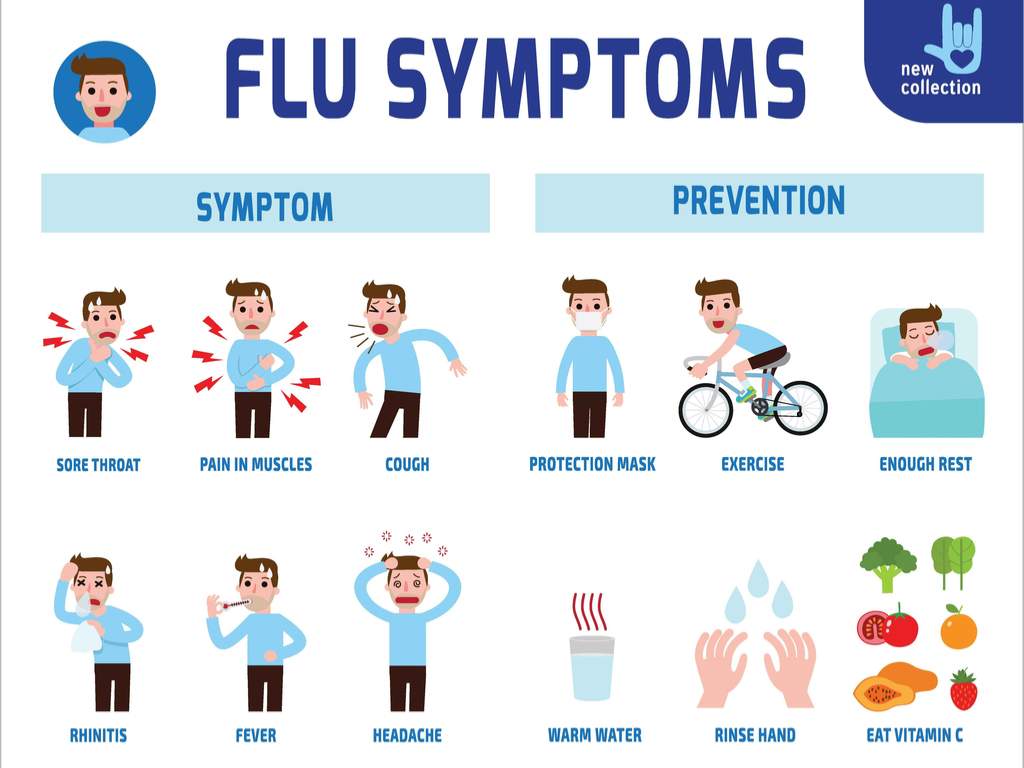The Reason for the Season: The Seasonal Flu
Good to Know
Nov 9, 2017
By: Brent Fries, Account Manager / Health and Safety Specialist
After a grueling summer, Coachella Valley residents are now coming into a must-needed winter season. The consistent 110 degree summer weather is something that full-time residents can now put behind them, and look forward to the prime winter desert weather. This is a great time in the Coachella Valley - population increases, local businesses boom, community events come into fruition, and the weather is the reason for it all.
Even though we are approaching a season that is favorited by most desert residents, there is also a season that is not: Influenza season. The seasonal flu is extremely reliable, showing up sometime in late fall, usually peaking over the winter and then waning as we gallop toward spring. Although the Seasonal Flu is hard to predict in severity, we can always be assured that it will show up after the summer heat has subsided.
So what is the Flu and why does it strike in winter?
The flu, also called influenza, is a viral respiratory illness. The flu is different from the %u201Ccommon cold%u201D. The symptoms of seasonal flu usually come on suddenly. People who have the flu often feel some or all of these symptoms: Fever or getting chills, coughing, sore throat, runny or stuffy nose, muscle or body aches, headaches, and fatigue.
The Center of Disease Control and Prevention state that there are three common theories about why seasonal flu prevalence increases in winter months:
1) During the winter, the Coachella Valley%u2019s population increases, so there is a higher chance that individuals breathe the same air as someone who has the flu and thus contract the virus.
2) Days are shorter during the winter, and lack of sunlight leads to low levels of vitamin D and melatonin, both of which require sunlight for their generation. This compromises our immune systems, which in turn decreases ability to fight the virus.
3) The influenza virus may survive better in colder, drier climates, and therefore be able to infect more people at a more rapid rate.
Good Health Habits Can Help Prevent Seasonal Flu
It is important to spread awareness about seasonal flu symptoms and to develop habits that can prevent seasonal Flu. As a reminder, here are some common habits that help prevent seasonal flu.
1. Avoid close contact.
Avoid close contact with people who are sick. When you are sick, keep your distance from others to protect them from getting sick too.
2. Stay home when you are sick.
If possible, stay home from work, school, and errands when you are sick. This will help prevent spreading your illness to others.
3. Cover your mouth and nose.
Cover your mouth and nose with a tissue when coughing or sneezing. It may prevent those around you from getting sick.
4. Wash your hands.
Washing your hands often will help protect you from germs. If soap and water are not available, use an alcohol-based hand rub.
5. Avoid touching your eyes, nose or mouth.
Germs are often spread when a person touches something that is contaminated with germs and then touches his or her eyes, nose, or mouth.
6. Practice other good health habits.
Clean and disinfect frequently touched surfaces at home, work or school, especially when someone is ill. Get plenty of sleep, be physically active, manage your stress, drink plenty of fluids, and eat nutritious food.


